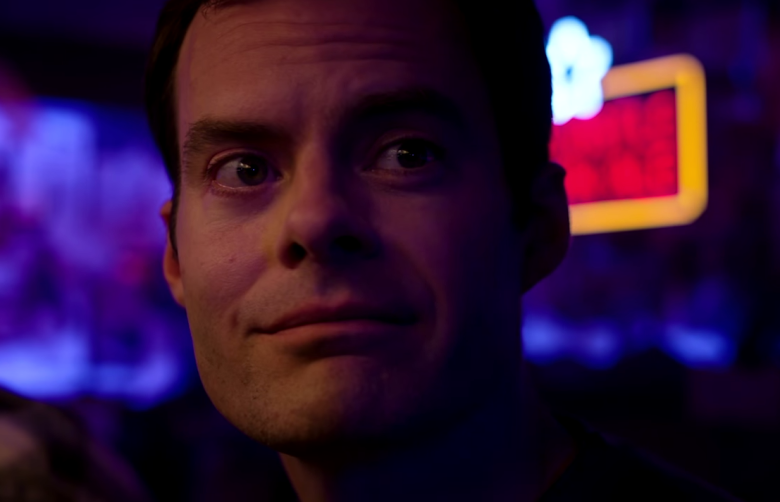Bill Hader and Alec Berg Talk ‘Barry’
Bill Hader stars as the eponymous hitman with a heart of gold in “Barry.”
April 9, 2018
Hitman actor is not an occupation you hear about every day, but that odd career path and the lifestyle that comes with it is exactly what HBO’s latest venture “Barry,” seeks to explore.
The dramedy brilliantly navigates the absurdity that follows a former marine turned hitman-for-hire turned actor Barry Berkman (Bill Hader) as he attempts to reorient himself in Los Angeles. This story of a fish out water, or more appropriately, Clevelander out of Lake Erie, is as exciting as it is endearing.
Co-creators Alec Berg (“Silicon Valley”) and Hader (“Saturday Night Live”) premiered their first season of eight episodes on March 25. On April 5, Berg and Hader sat down with WSN and other college newspapers to discuss “Barry,” how it came to be and where its titular aspiring actor’s story is headed.
Hader commented on the character’s awkwardness –– as he pursues his passion of acting and attempts to balance his love for Sally (Sarah Goldberg) while living a secret life as a hitman –– which serves as a source for much of the humor.
“I watched a lot of true crime shows because the reenactments on true crime shows are pretty bad,” Hader said. “That was helpful. But mostly it’s just playing whatever the reality of that would be and not think too much about the comedy, in a weird way, and it kind of works. When you push the comedy, it starts to feel like you’re reaching for something that might not be there.”
A comedy about a hitman would presumably include a lot of violence, but given the ubiquitous nature of gun violence and mass shootings in the United States, the show’s creators decided to approach the genre with caution. They felt it was necessary to tread carefully and use that platform to make a statement. Berg commented on how they decided to present the subject in accordance with their views.
“We talked about the way we would shoot the violence is almost like security camera footage, where it just is, without slow motion and closeups and making it seem cool,” Berg said. “It should seem kind of sad and horrifying and uncomfortable because that’s what it is. So the idea of glamorizing it, we wanted to go the opposite.”
Hader also expanded on his inspiration for Barry, citing his own experiences on “SNL” as influential to the character’s development, channeling how well-adjusted he felt on set into Barry’s confidence in being a hitman. Hader said he also related to the character because the acting class Barry takes reminds him of the environment at “SNL,” where he worked with people he admired.
“How do I stay here? Because I know it will enrich my life somehow,” Hader said on the question that occurred to him when entering and interacting with the “SNL” community; a question that drives Barry’s own journey into acting.
One surprising note for those who have watched the first two episodes of the show is the development of Henry Winkler’s character, Gene Cousineau, an acting teacher revered in an almost godly manner.
“Once you bring in talented actors and they put their spin on things, when we wrote Henry Winkler’s character, he was written as a much more darker, angrier, meaner, more sadistic guy,” Berg said. “Then when Henry Winkler came along and started performing that part, he’s just so naturally warm and likeable that it became this very different, totally interesting thing where suddenly he is more three dimensional, not just a sadist. You can tell that there’s pain and there’s angst in him as opposed to just being a monster.”
Berg and Hader both mentioned how a script, however ludicrous the premise may be, has to have an acorn of truth, a spark of relatability, to ground it and give it the value to make it work. “Barry” finds that acorn.
Watch “Barry” on HBO Go — free for all NYU students.
A version of this article appeared in the Monday, April 9 print edition. Email Anubhuti Kumar at [email protected].
























































































































































